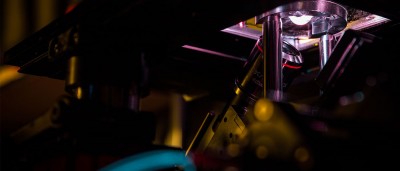Poziotinib is active in EGFR exon 20 mutant non-small cell lung cancer with efficacy highly dependent on insertion location
University of Texas MD Anderson Cancer CenterA Phase II clinical trial of poziotinib for non-small cell lung cancer (NSCLC) with epidermal growth factor receptor (EGFR) exon 20 mutations, led by researchers at The University of Texas MD Anderson Cancer Center, found the drug had significant antitumor activity and the efficacy was highly dependent on the location of the exon 20 loop insertion, which may impact future clinical trials for EGFR exon 20 targeted therapies.

.png&width=400&height=400)











































